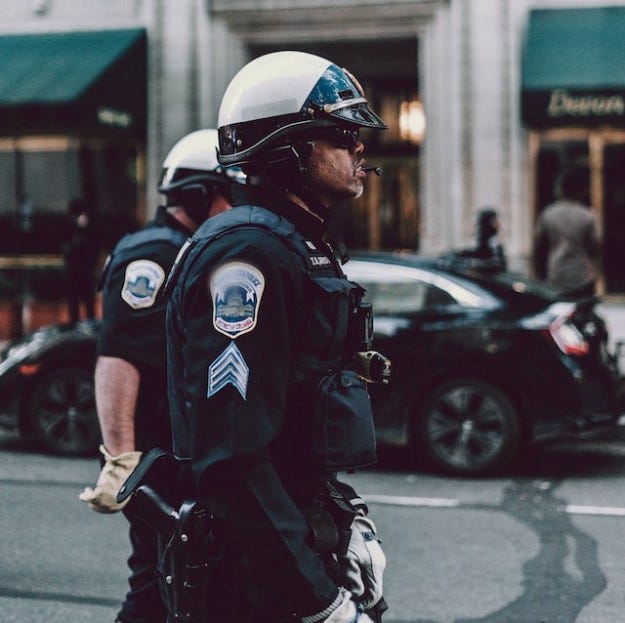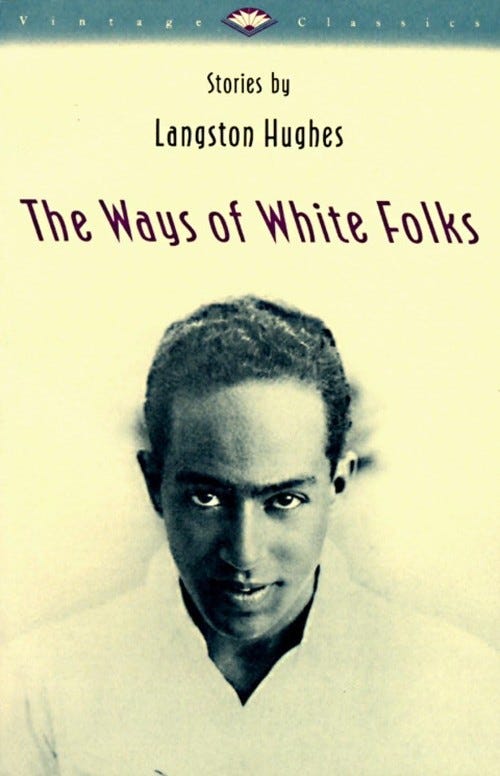From master to overseer, from slave patrol to police force, from white cop to black cop
The conversation I wish I could have now with that black train conductor

I guess the train conductor was in a talkative mood. That or he needed to find someone who would listen to him from a non-judgmental place. I’d just boarded the train during a night shift of my after-school job and sat down in my usual spot. I greeted my two favorite 20-something conductors per usual and got ready to read whatever novel was in my bookbag.
After they collected ticket money and checked weekly and monthly passes, the conductors often hung out by the doors. But it wasn’t uncommon for them to circle back to a few passengers to talk. I was one of those passengers and smiled when one of the two conductors sat down. On my way home, we’d talked about everything from him getting lasik surgery to family to friends even to my plans for senior prom, but the one topic he very rarely discussed was his other job.
ADVERTISEMENT ~ Amazon
As an Amazon affiliate, I earn a percentage from purchases with my referral links. I know some consumers are choosing to boycott Amazon for its DEI removal. However, after thinking about this thoroughly, I want to continue promoting cool products from small businesses, women-owned businesses and (specifically) Black-owned businesses who still feature their items on Amazon. As of the first date of Black History Month 2025, each new post will ALWAYS include a MINIMUM of one product sold by a Black-owned business. (I have visited the seller’s official site to verify that Amazon Black-owned logo.) I am (slowly) doing this with older, popular posts too. If you still choose to boycott, I 100% respect that decision.

He’d briefly mentioned he was an undercover narcotics officer and how he had mixed opinions about which neighborhoods he was sent to. I used to think he was lying. Who would get a job as a train conductor if you were working undercover in law enforcement? Then again, if you’re trying to pull this off, a public job makes sense. I wondered would the two paths ever cross—as in the people he was supposed to be either working for or dealing to—and would these people board his train. Regardless, I listened as he gave me an overview. I asked him did he ever want to quit this job. He sorta shrugged, mumbling about it paying bills and how he had mixed opinions but liked helping to clean up neighborhoods, especially in our community.
Recommended Read: “The invisible visibility of black women and police ~ Roll the dice: Women and privilege, or black women and discrimination”
I nodded. I didn’t disagree with him, but I always wondered if he was as nonconfrontational and nice to them (at least upon first approach) as he was with me. To me, he was a friendly (and handsome) guy. But even as a senior in high school, I’d met a few “handsome” white and black officers who were probably “friendly” to someone else but straight-up assholes to me. (I hadn’t met any Asian or Hispanic police officers at that age, and it’s still rare now.) Still, I was fully aware, even before I was old enough to vote, that all of the above could be responsible for police brutality.
Recommended Read: “My first time being racially profiled put me in the #NeverBloomberg campaign ~ If Bloomberg wins, I write in another candidate”
So I raised an eyebrow while reading Van Jones’ CNN column, specifically this line:
“The narrative ‘White cop kills unarmed Black man’ should never have been the sole lens through which we attempted to understand police abuse and misconduct. It’s time to move to a more nuanced discussion of the way police violence endangers Black lives.”
Statistically speaking, there are more white police officers than black ones — 64.9% to 12.1% — and more male than female — 83.2% to 16.8%. But this narrative that black people (usually Black Lives Matter advocates get blamed) are solely pointing the finger at white police officers couldn’t be further from the truth. While Tyre Nichols’ horrendously cruel death over a traffic stop is the current talking point when it comes to black officers, three of the six officers involved in Freddie Gray’s death from 2015 and the Asian officer involved in George Floyd’s death from 2020 are prime examples of how activists did not solely focus on white cops.



